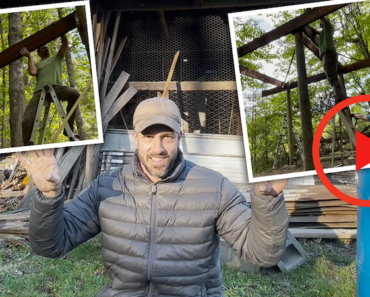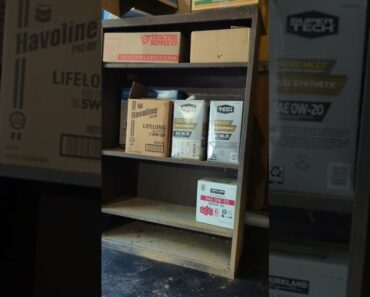War is never an easy topic to talk about, especially when young children are involved in the subject. The continuing invasion of Ukraine by Russia will have long-lasting consequences not only for the infrastructure and economy of Ukraine but for the young minds who live there.
According to published research, young children and adolescents come in contact with traumatic events which leave them with PTSD, depression, dissociative disorders, and behavioral disorders, among other conditions. Another pediatric publication from 2018 mentioned that more than 10% of children worldwide are exposed to armed conflicts, both directly and indirectly. These events are toxic for their mental well-being at best and harmful for their physical well-being at worst, as is the case in the current ongoing conflict in Ukraine.
However, even second-hand exposure to war via mass media, the internet, and social networks can have consequences for young children if the exposure isn’t managed by adult supervisors or family members. If you have young children in your home and they’re asking you questions about what’s going on in the news, here’s how you can address the subject as gently as possible.
Don’t Underestimate Their Intelligence
When your grandchildren ask you about war, it’s already too late to act as if you don’t know what they’re talking about. You don’t want young children to find out about what war is from Wikipedia or other unfiltered, raw sources on the web. The moral is that you shouldn’t underestimate your grandkids’ intelligence on the matter. The current news is filled with references and direct coverage of the ongoing conflict in Ukraine. It’s difficult to ignore what’s going on in the world and ask your grandkids to shut it all off.
Instead, you should respect their curiosity and find some time to talk about the topic in a controlled, emotionally-safe environment. It’s a good idea to offer your grandkids an unbiased explanation of what war is. Try to avoid pointing fingers or accusing anyone of anything to an eight-year-old. Doing this will only lead them to unfounded and unjustified contempt and intolerance toward someone or something they’ve never come in contact with (people in Europe, children in Russia, etc.).
Reassure Them That War is Temporary
Even though we as adults know that wars and proxy conflicts are happening around the globe almost constantly, children don’t need to know this. To understand the concept of war, children should be aware of the fact that wars are temporary. Once one side or the other gets what they want, or once a peace treaty has been signed, wars end. Wars shouldn’t be represented through the lens of something exciting, fun, or “cool.”
When someone experiences war first-hand, it is anything but that. These are extremely traumatic events in which families have split apart, and the damages caused are always catastrophic. As a parent or a grandparent, you should find the right words to gently ease your young children into the topic but maintain the notion that it’s all temporary. If children hear that wars eventually end and don’t go on forever, they’ll be easier to calm and reel in emotionally.
Limit Your Children’s Media Exposure
If your grandkids are young enough, you can limit their media exposure to avoid the unnecessary effects it might have on their mental well-being. In today’s climate, it’s very difficult to control what they may or may not see when your back is turned. With national news and social media sites covering the war daily, young children will inevitably come across an unfiltered photo or a video report from Ukraine.
If your grandkids are young enough, they can indeed be distanced from media, and their attention can be focused on age-appropriate multimedia. Play cartoons, educational shows, and singalong videos for your young grandkids instead of letting them control what they watch for the moment. You can set up parental controls on your tablet or mobile device, as well as a smart TV, a computer, or other electronics such as gaming consoles. However, if your young children are 10+ years old, they might see through it and perceive it as you not trusting them enough with the truth. In that case, talk about the subject openly but carefully, as we’ve discussed.
Assign Them Creative Anti-War DIY Projects
Once your grandkids have gotten used to the concept of war a bit, you can help them cope with it through DIY projects. Young children are ideally suited to think outside the box on this one, and they can express their feelings and ideas through creative projects. Depending on your child’s age, they can sketch, paint, build, or even write about their perception of war.
Older kids who are going to college can also work on more extensive articles, studies, or even research papers on the matter. They can use research paper services to have their writing cleaned up by a professional editor who will also check their citations and resources, for example. Creative anti-war projects are a good way for kids to have some semblance of control over the concept.
Talk to Them About NGOs and Relief Organizations
Young children can often feel helpless when faced with the concept of war. However, you can make it easier on them if you also talk about the relief organizations and NGOs working to help the victims of war. Numerous organizations around the globe are funded either by angel investors or by public donations.
The University of Berkley, California, has an extensive list of NGOs working on humanitarian relief. You can look at the website with your child or grandchild and explain to them the idea behind these organizations. This can help ease their mind and reassure them that not everything is bleak during wartime. Moreover, this can spark volunteering or donation interest in them if they have personal income or allowance (again, depending on their age).
Ask Them About Their Opinions
One of the most important things you should do when you educate your child about war is to ask them what they think about it. Simply let your child or grandchild talk about their perception of war, how it makes them feel, and what they’d do to stop it. Yes, your grandchildren may have naïve or idealistic views of how wars should end but let them talk anyway. More importantly, listen to what they have to say.
Acknowledge their thoughts and ideas and don’t downplay them, just as you would while explaining other concepts like finance or nature to them. You can also broach the topic of survival and preparation for wartime to get your grandchildren’s opinion on how to prepare. Include them in the conversation about war, and don’t simply humor them – they’ll appreciate it down the line.
Anti-War Video Games Can Help Young Children
We all know that there are plenty of violent video games out there. But, there are also anti-war games that depict war and global conflicts as negative and offer important moral messages to their players. If your young grandchildren are old enough to play video games, you can check some of them out together and discuss war while doing so.
Games like This War of Mine and Valiant Hearts are made by independent developers who tried their best to communicate how war is detrimental to everyone. They are emotional and creative, and they don’t rely on violence to convey their messages. This is a great way to explain war to young children and adolescents, especially if they’re already gamers themselves. Moreover, you’ll spend some time bonding over a video game, and you may pick up a new hobby of your own if you haven’t been a gamer before.
Minimizing the Effects of War on Young Children (Conclusion)
Once young children are openly exposed to war, either through first-hand or second-hand experience, all you can do is help them cope with it. There’s little point in being in denial about what they’re going through or lying to them about the reality of what’s going on. However, you should still be mindful of their mental well-being and ease them into the subject matter to discuss what war is.
A recent publication from 2019 indicated that children go through different response states when exposed to war, ranging from acute stress reactions and ADHD to panic, anxiety, and sleeping disorders. While children in the US are safe from what’s going on in Europe, they’re still seeing the effects of the conflict via news and social media. Insomnia, eating disorders, depression, and even alcohol and substance abuse are very much a possibility if the perception of war is treated improperly with young children.
There are no winners in war, and children suffer the most because of what’s going on out there. Help your child cope with the stress and uncertainty by being there when they need you the most. They’ll be very grateful to you for the support and understanding you’ve provided in a time when the world seemed so confusing to them.


























